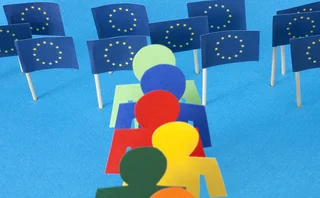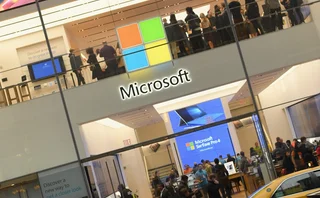
Keeping the lights on
Power companies need to focus on resilient networks
This year’s Energy Risk USA conference (just finished in Houston) left delegates with plenty of food for thought but, among the discussions of market manipulation, blockchain applications and portfolio management, the issue of resilience was never far from anyone’s mind.
Houston itself, of course, was hit badly by last year’s hurricane season – in particular by Hurricane Harvey, one of the costliest disasters in history, which caused unprecedented flooding across Texas and elsewhere in the region. Others were hit worse. Eight months after Hurricane Maria, 20,000 houses in Puerto Rico are still without power – inept repair efforts backfired in March and April, blacking out large parts of the island again.
The hurricane affected many energy companies directly – notably BP, which wins our Natural gas house of the year award for 2018 – putting their business continuity plans through a new and severe stress test. But resilience should be a concern, even for companies whose wholesale trading operations are not sited in a hurricane track in the middle of a floodplain.
Even if their intensity does not change over time (and the evidence is ambiguous for storms), natural disasters will become steadily more and more damaging – every year sees more buildings and infrastructure built in vulnerable areas. And few entities – even military entities – are ready to function without grid power for more than a few days.
Resilience should be a concern, even for companies whose wholesale trading operations are not sited in a hurricane track in the middle of a floodplain
Energy companies, in particular power companies, need to step up and make their supply and distribution networks far more decentralised and resilient. Fortunately, the technology is now becoming available for them to do so – not only cheap photovoltaic cells and increasingly inexpensive battery storage, but the software needed to manage decentralised power networks with multiple small and intermittent sources of power. Even blockchain could be used to manage the trading of power among decentralised networks of producer/consumers or “prosumers”.
And – another reason for optimism – there are economic incentives for all these developments to be rolled out. Achieving resilience by accident still counts as a win.
Only users who have a paid subscription or are part of a corporate subscription are able to print or copy content.
To access these options, along with all other subscription benefits, please contact info@risk.net or view our subscription options here: http://subscriptions.risk.net/subscribe
You are currently unable to print this content. Please contact info@risk.net to find out more.
You are currently unable to copy this content. Please contact info@risk.net to find out more.
Copyright Infopro Digital Limited. All rights reserved.
You may share this content using our article tools. Printing this content is for the sole use of the Authorised User (named subscriber), as outlined in our terms and conditions - https://www.infopro-insight.com/terms-conditions/insight-subscriptions/
If you would like to purchase additional rights please email info@risk.net
Copyright Infopro Digital Limited. All rights reserved.
You may share this content using our article tools. Copying this content is for the sole use of the Authorised User (named subscriber), as outlined in our terms and conditions - https://www.infopro-insight.com/terms-conditions/insight-subscriptions/
If you would like to purchase additional rights please email info@risk.net
More on Our take
Hedge funds must race the clock to check their dealer-rule status
Working out whether a firm is caught by SEC registration requirement could take months
Filling gaps in market data with optimal transport
Julius Baer quant proposes novel way to generate accurate prices for illiquid maturities
Why Europe still awaits a private credit CLO
Tricky questions face managers that plan to launch the structure on the continent
The signs of tacit collusion in the dividend play trade
Game theory and real-world data point to a different understanding of how arbitrage in markets works
Decades of history says you can beat high inflation with quality
Factors such as momentum and value generally outperform the market irrespective of inflation, but new research suggests quality stocks are best when prices are rising rapidly
Esma faces tough task in implementing Emir 3.0
EU regulator must contend with tight timeframes and increasing workload without additional resources
Quants are using language models to map what causes what
GPT-4 does a surprisingly good job of separating causation from correlation
China stock sell-off will test securities firms’ risk managers
Regulatory measures to support stock market could add to risks facing securities sector
Most read
- Podcast: Olivier Daviaud on P&L attribution for options
- SG trader dismissals shine spotlight on intraday limit controls
- For a growing number of banks, synthetics are the real deal







